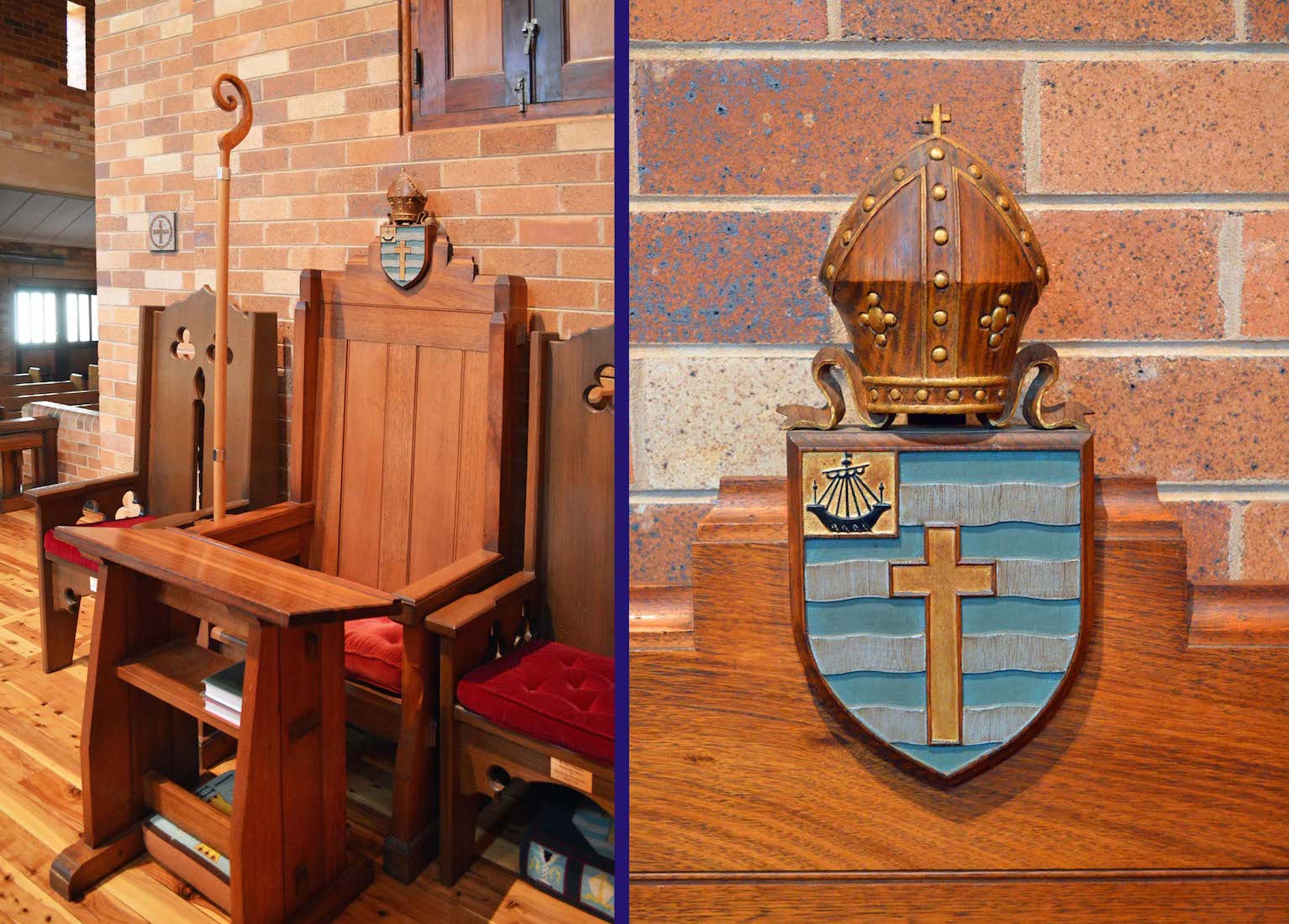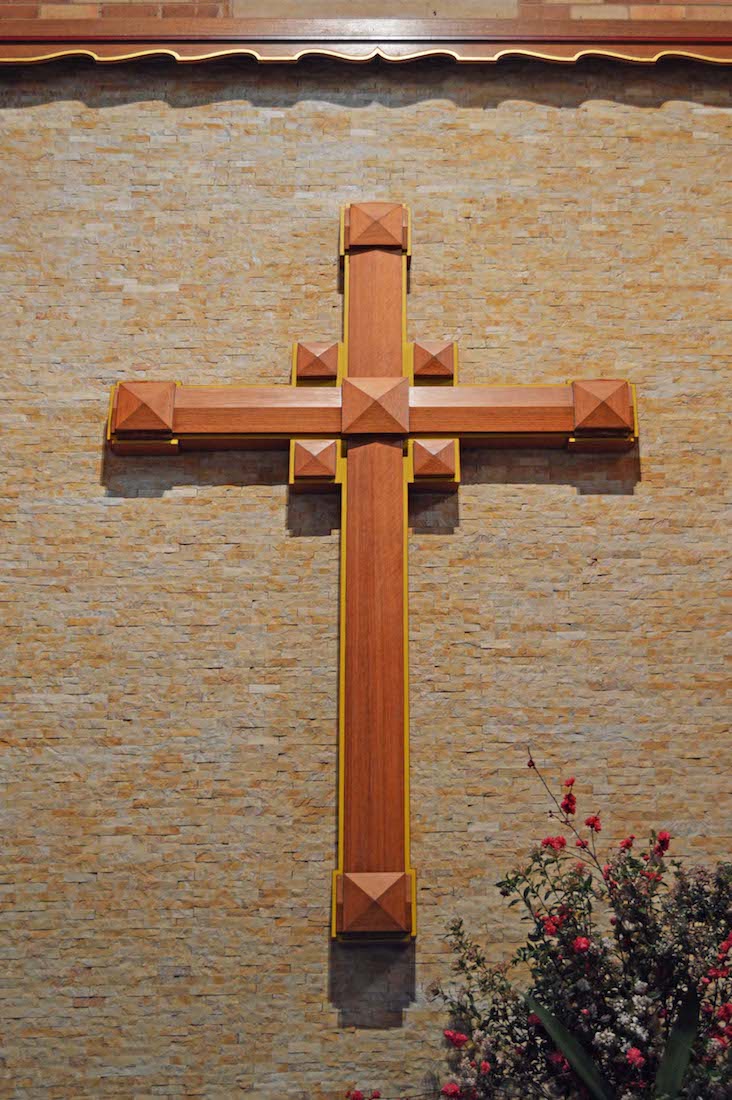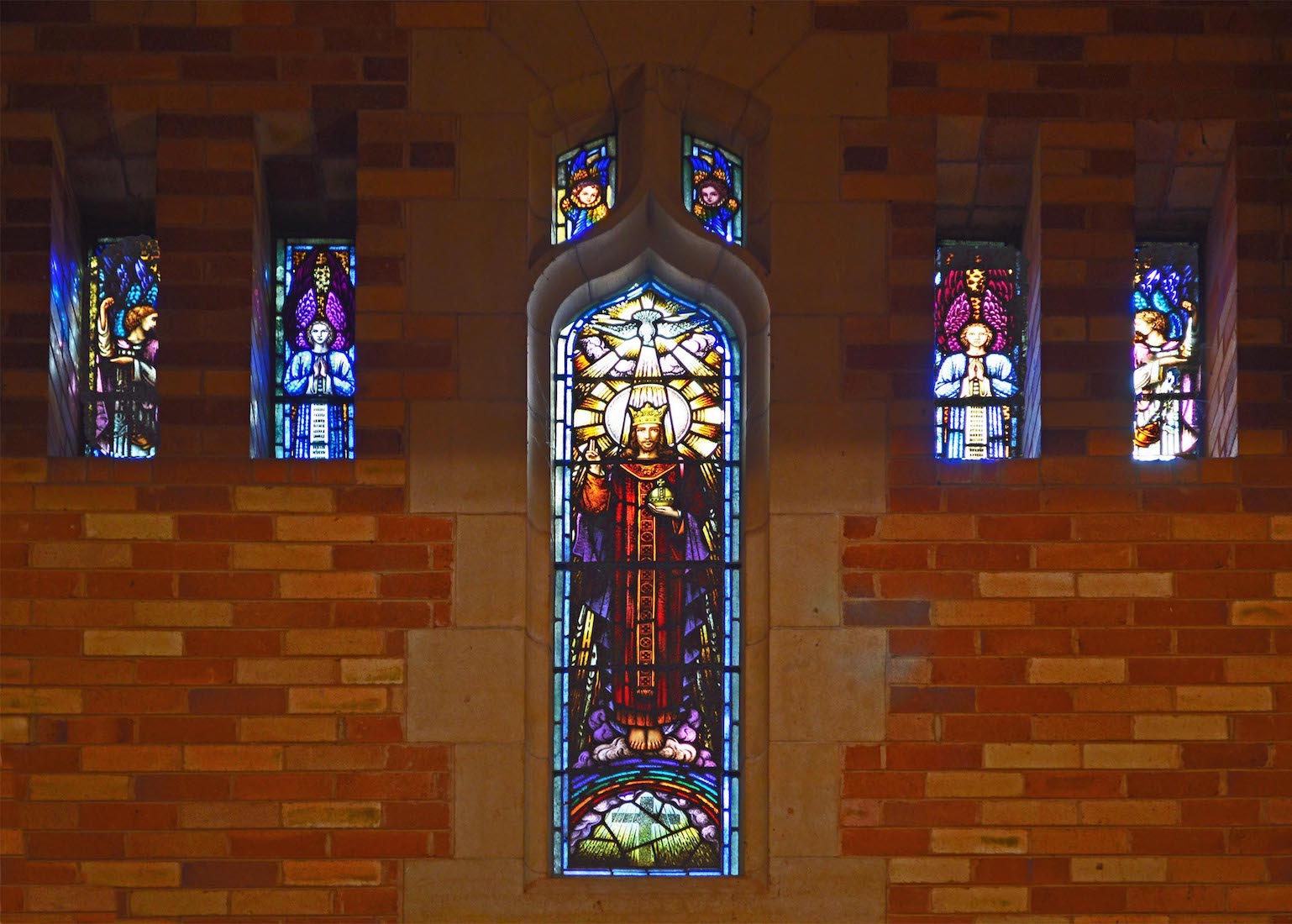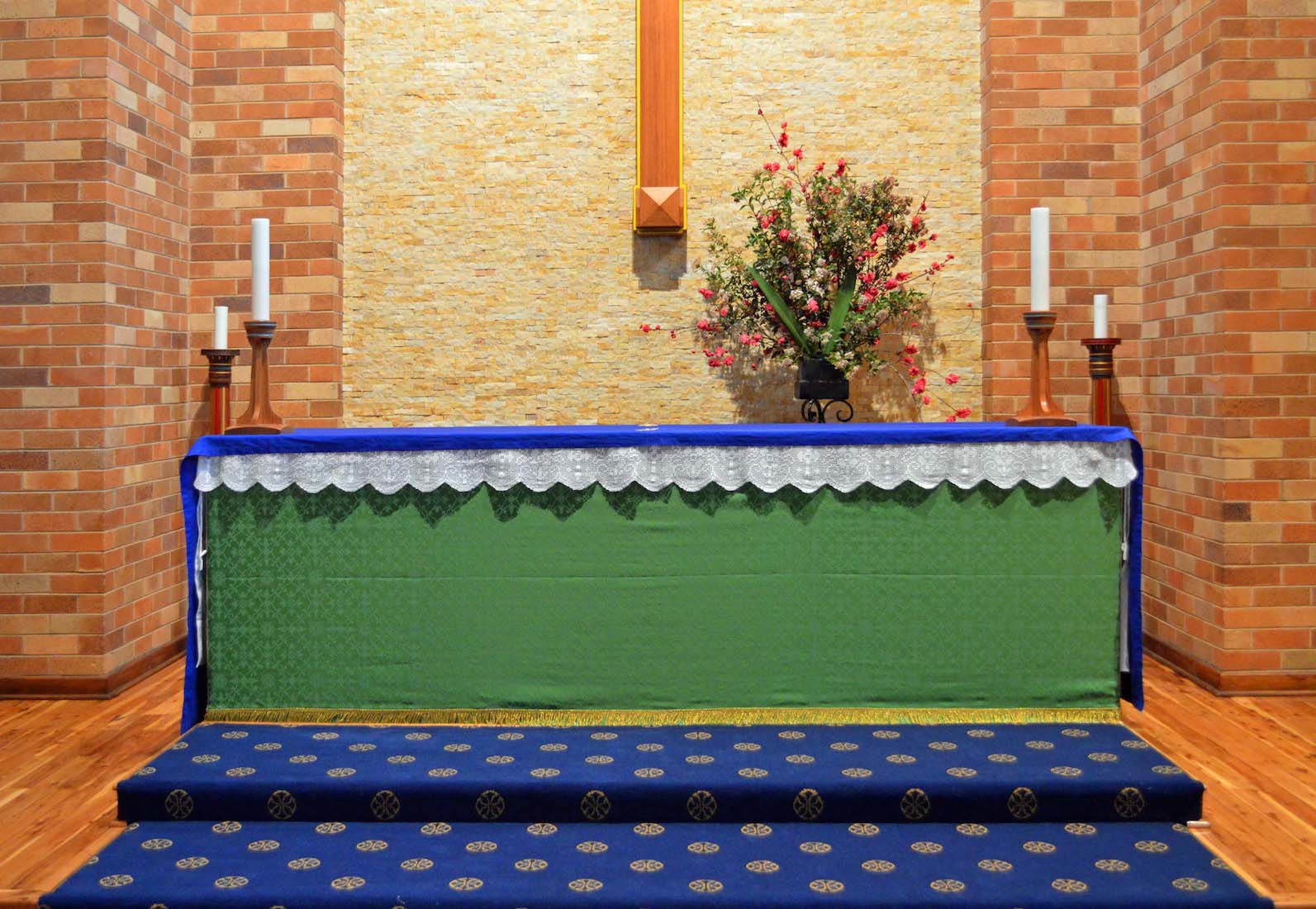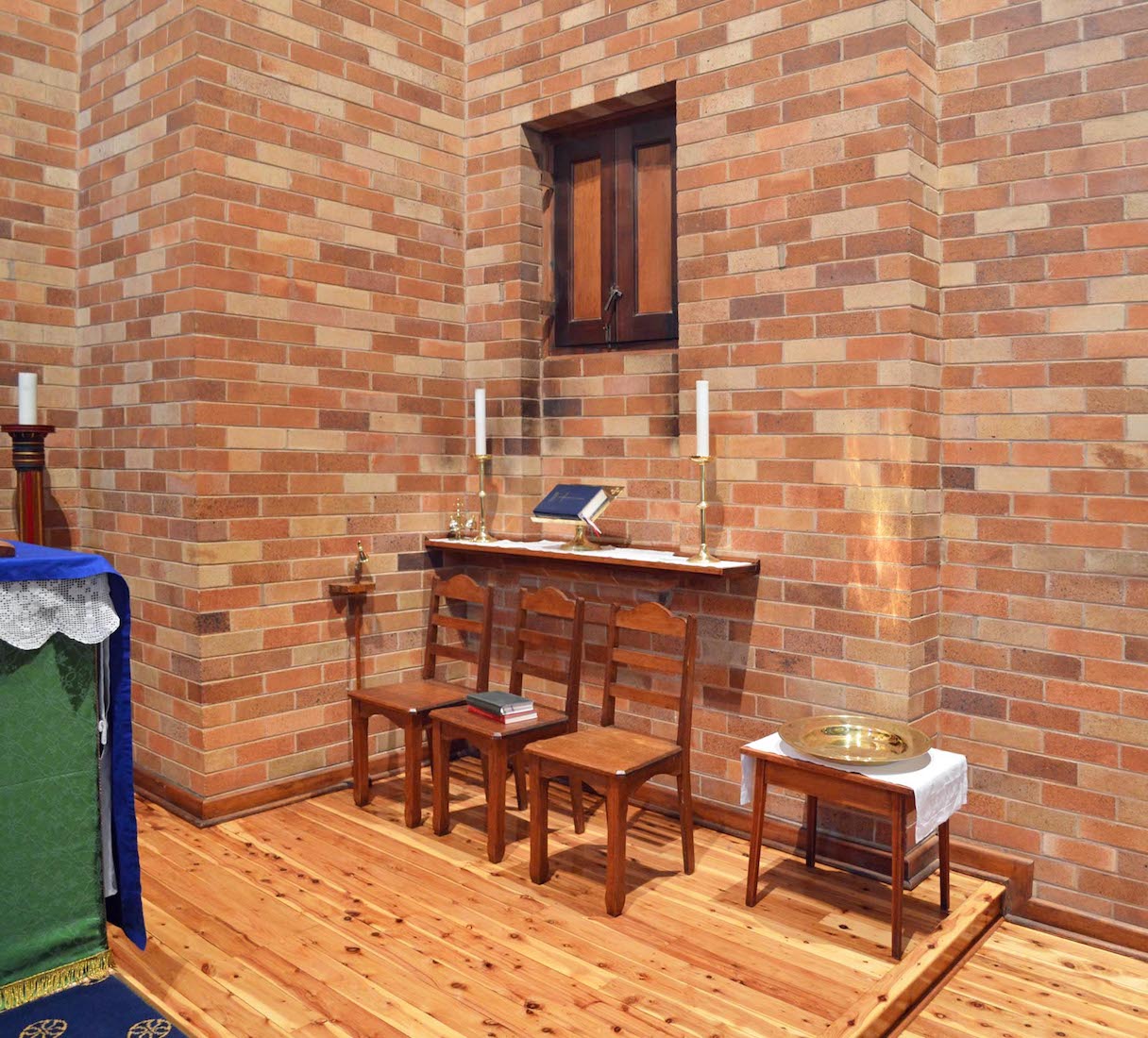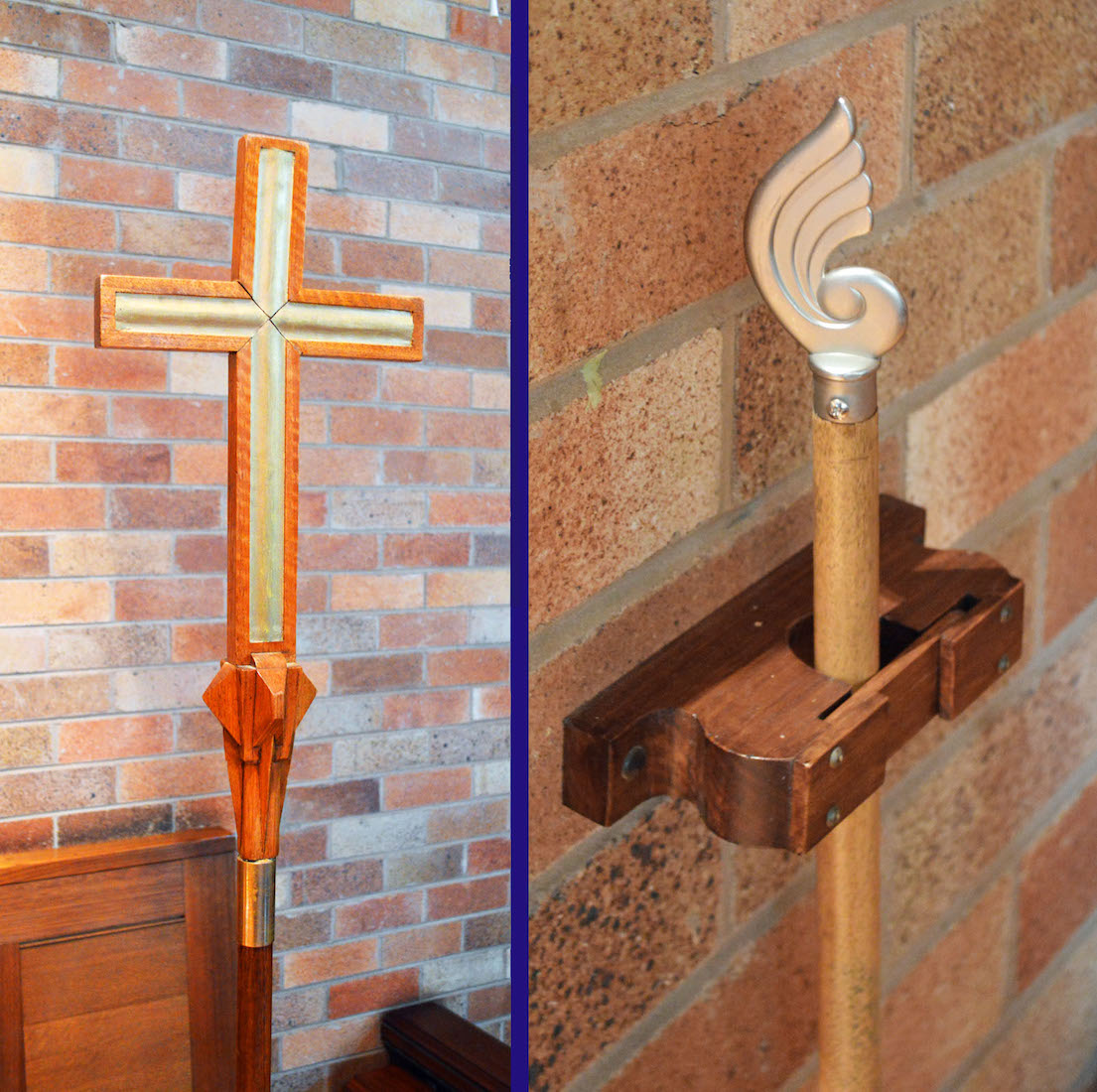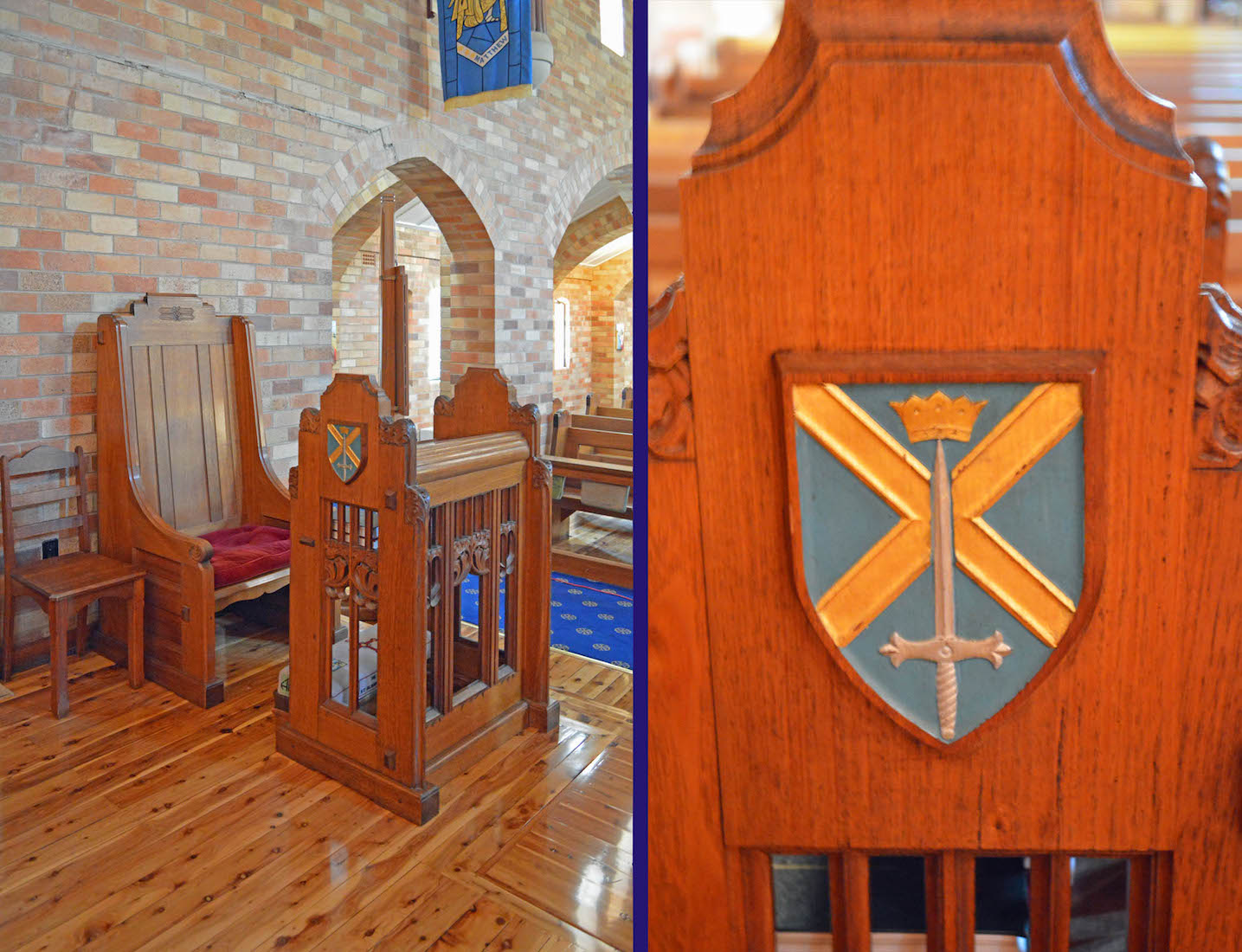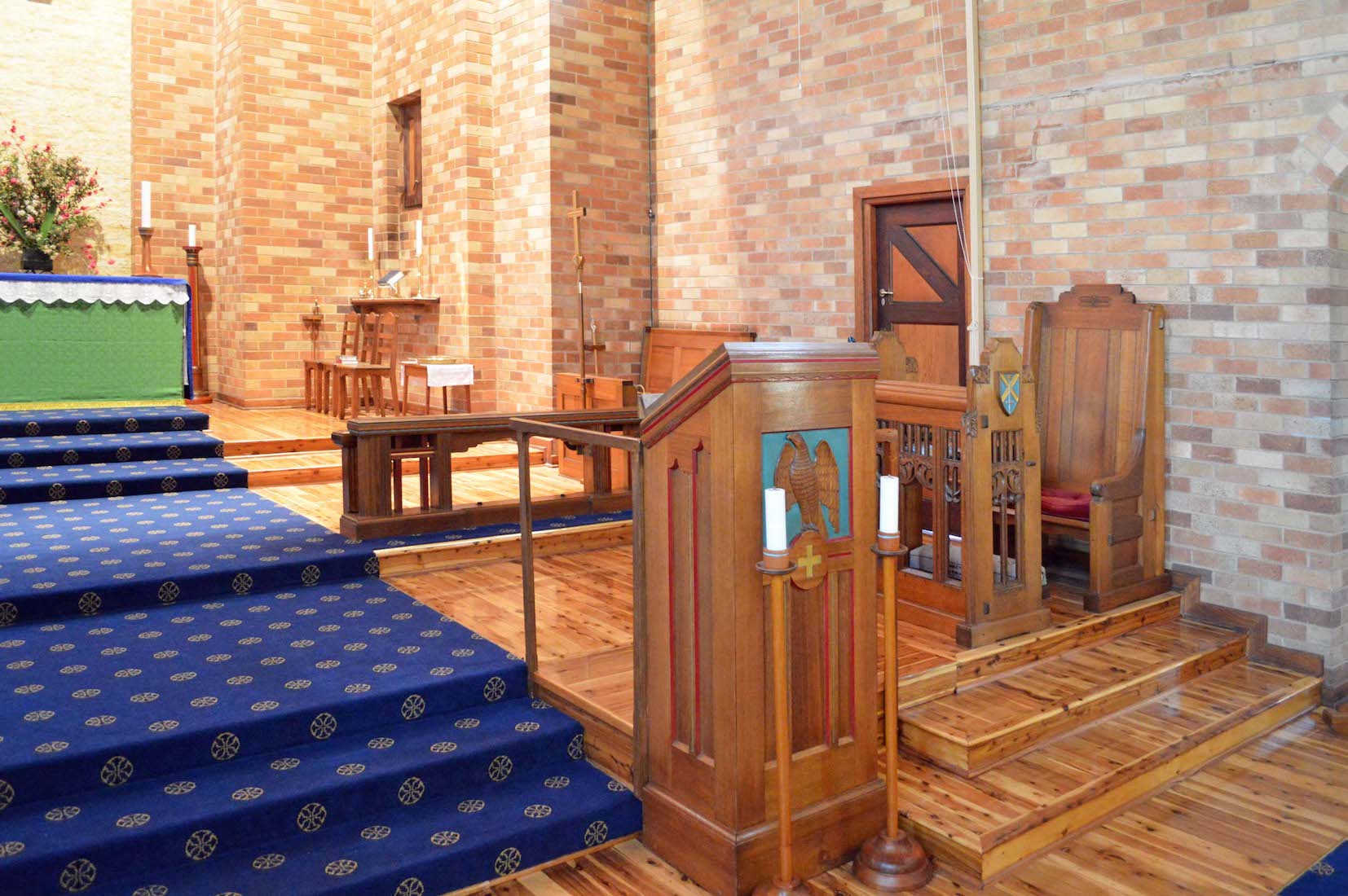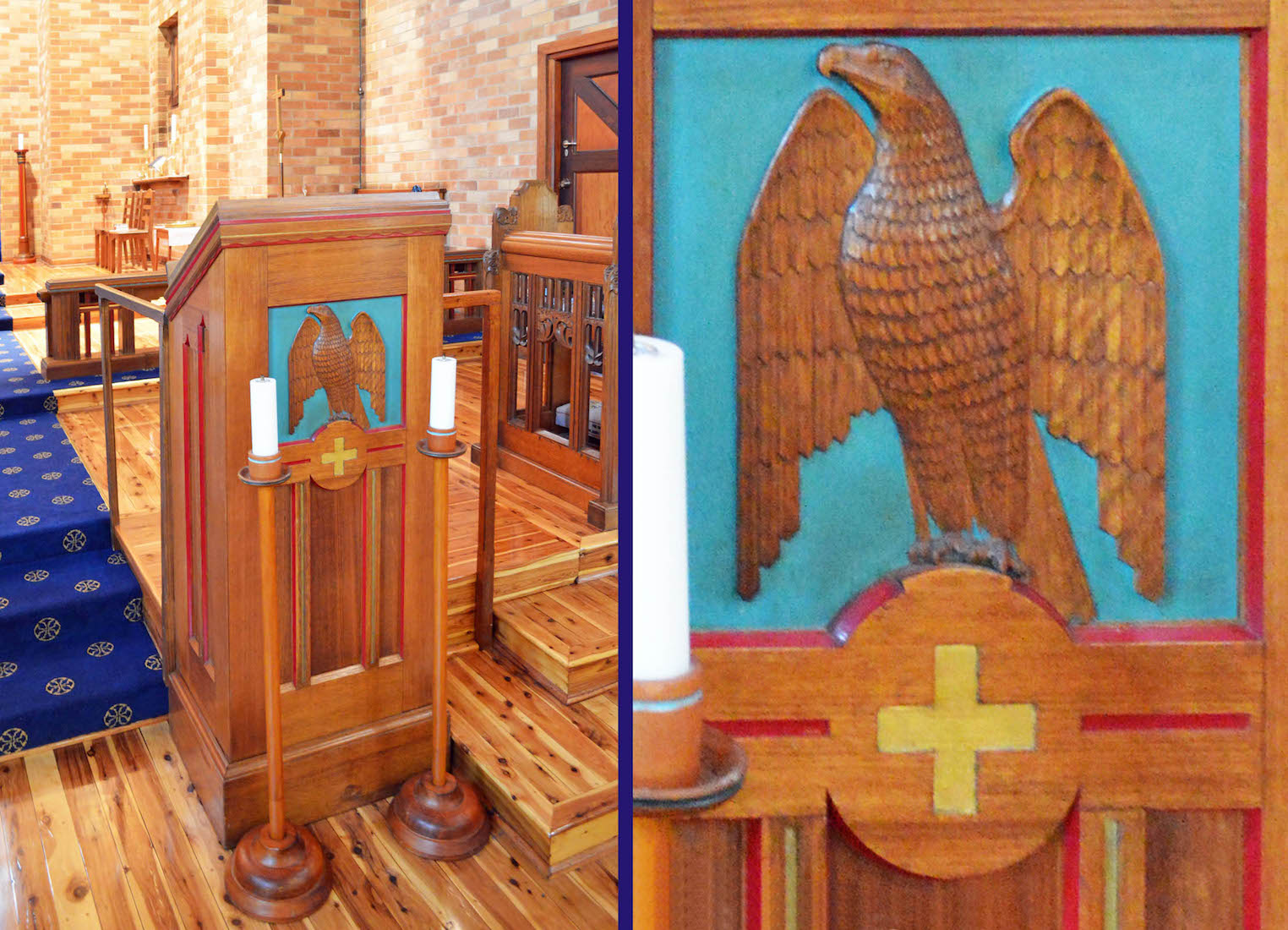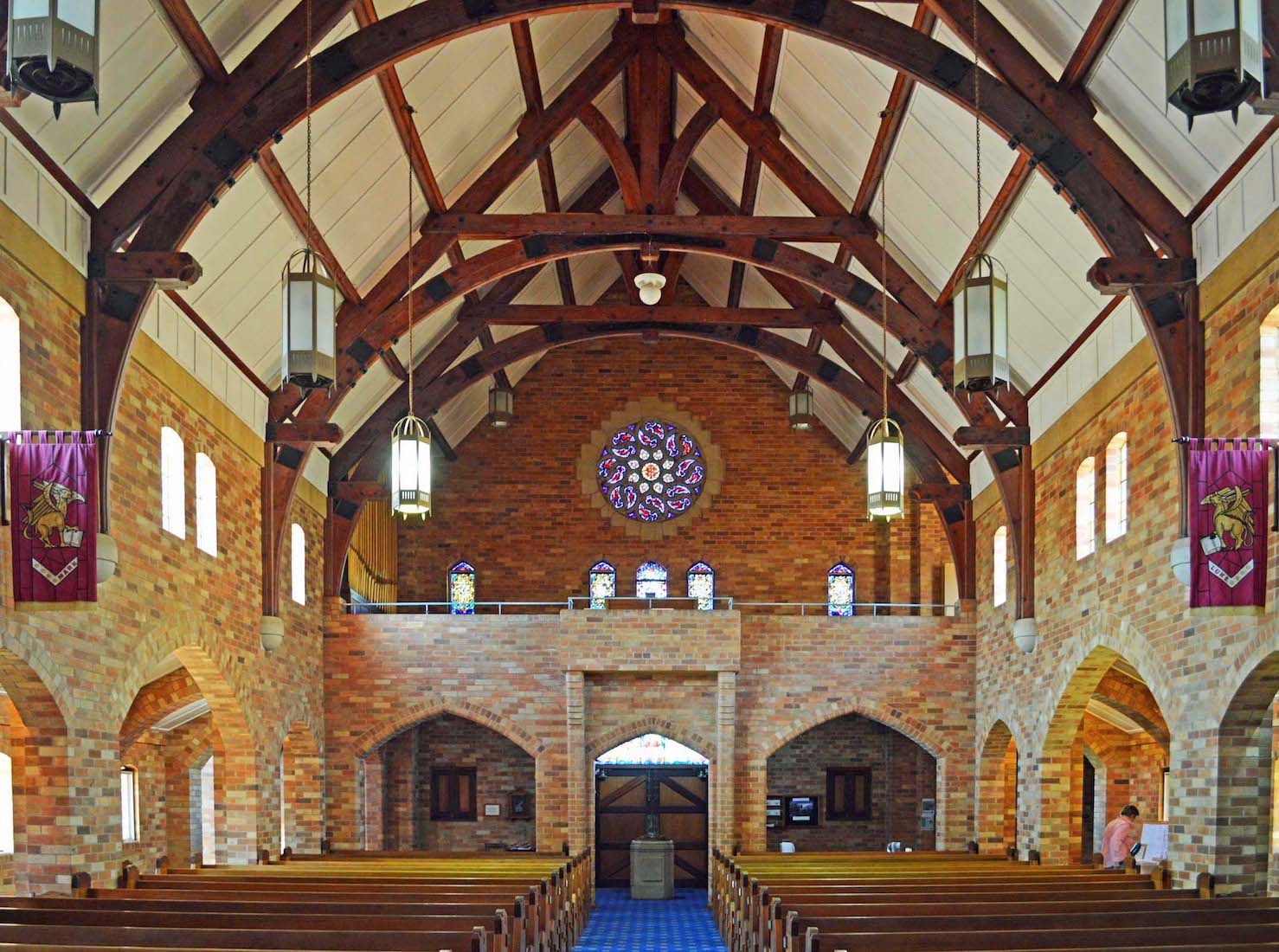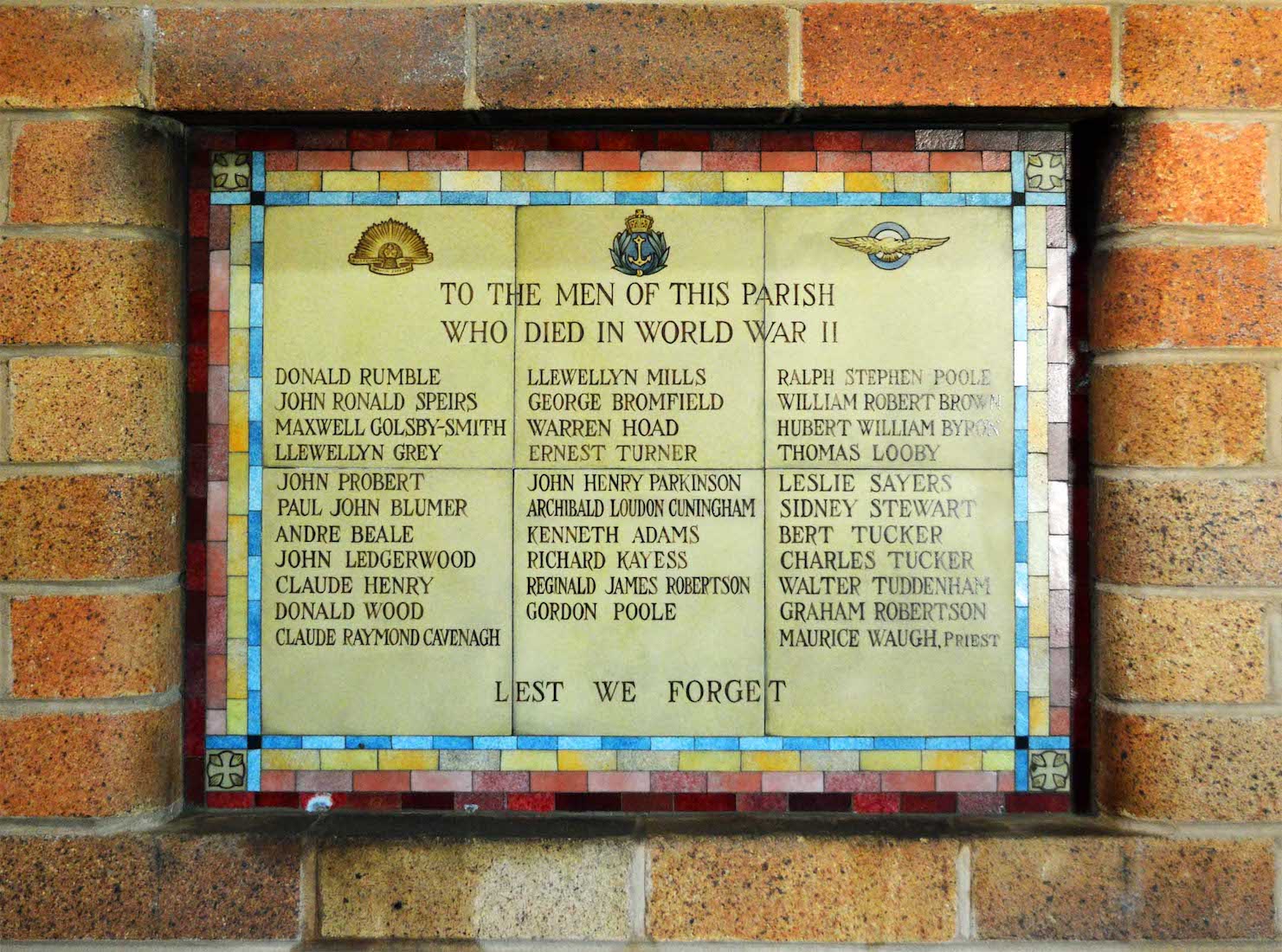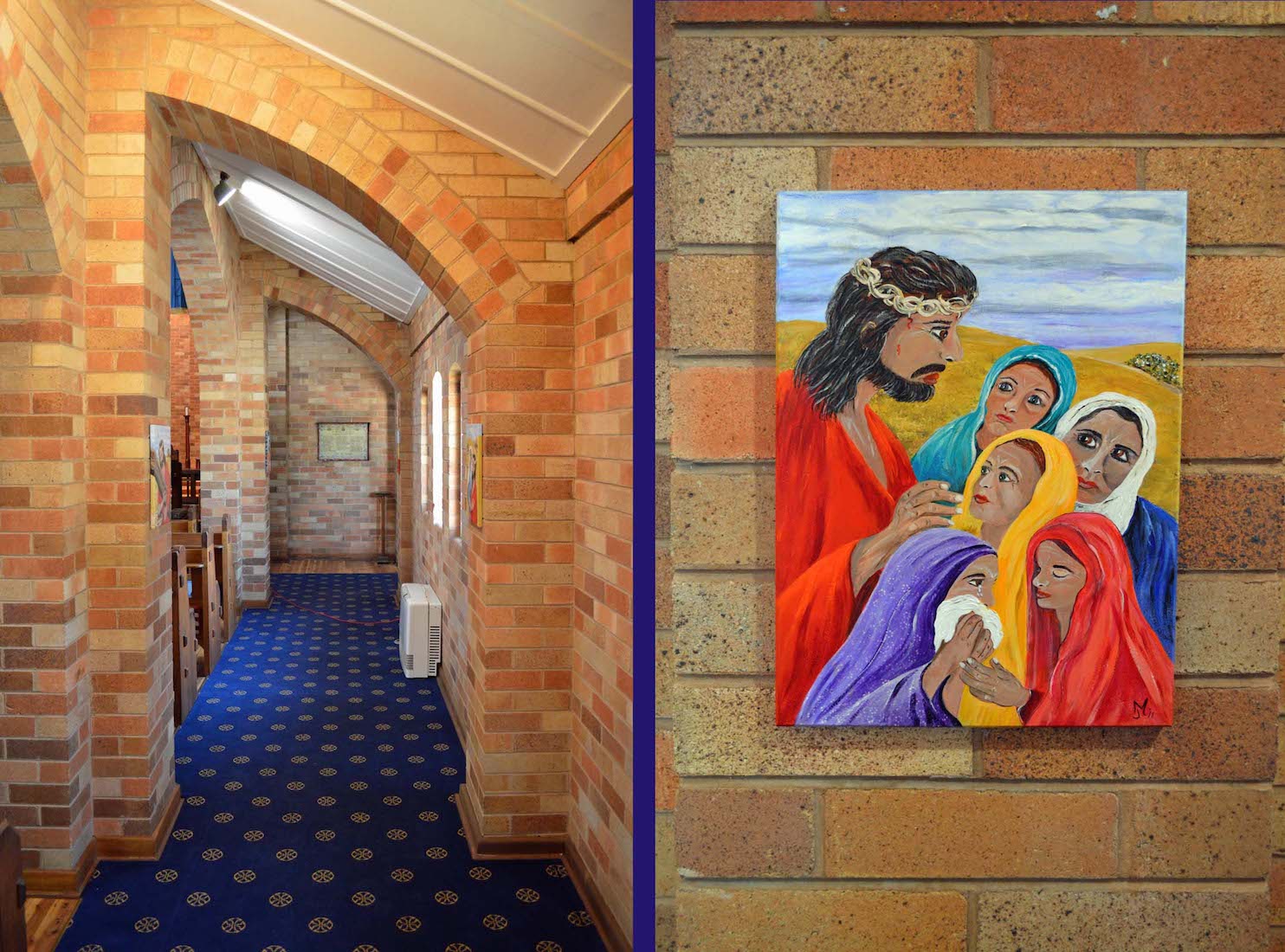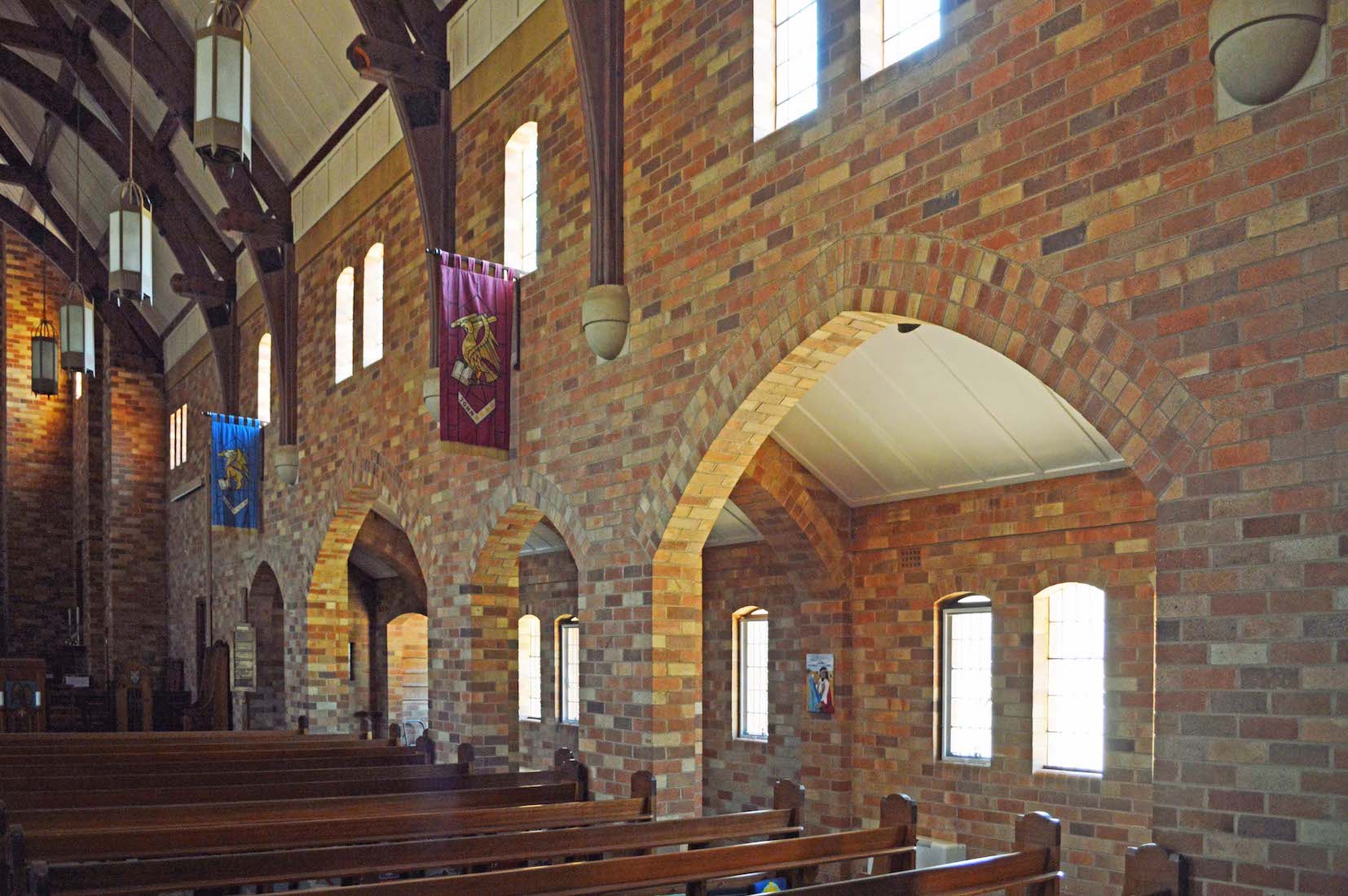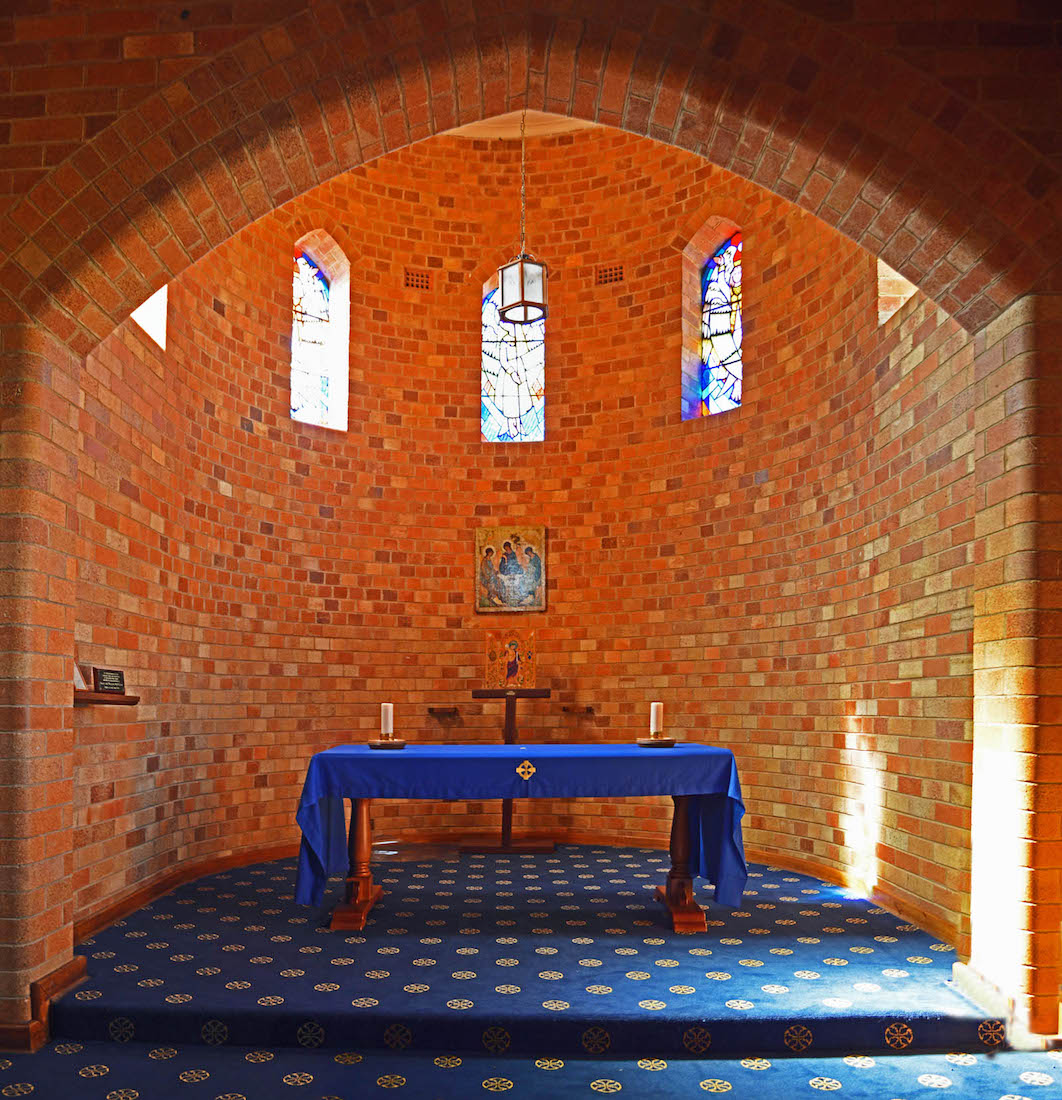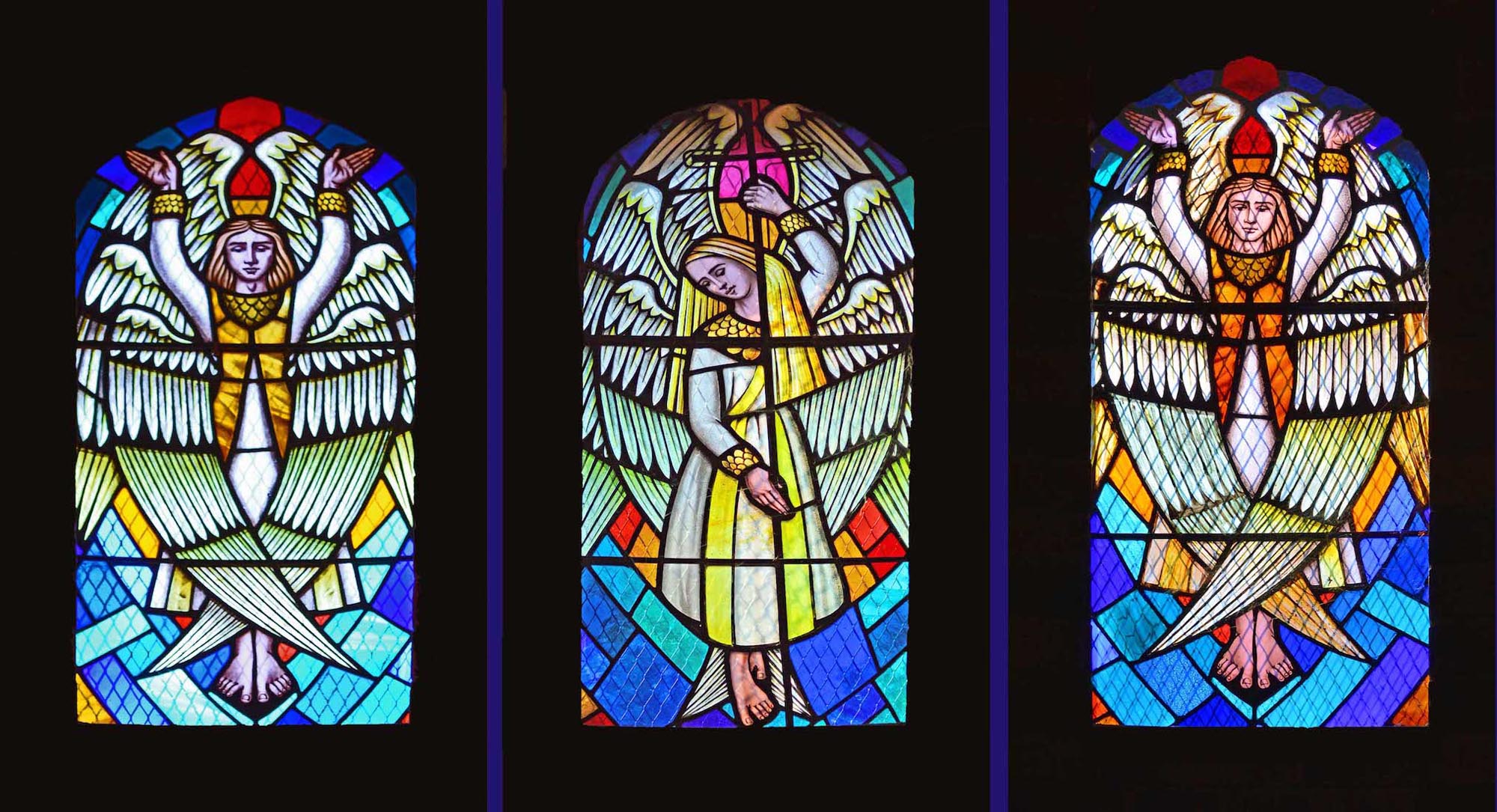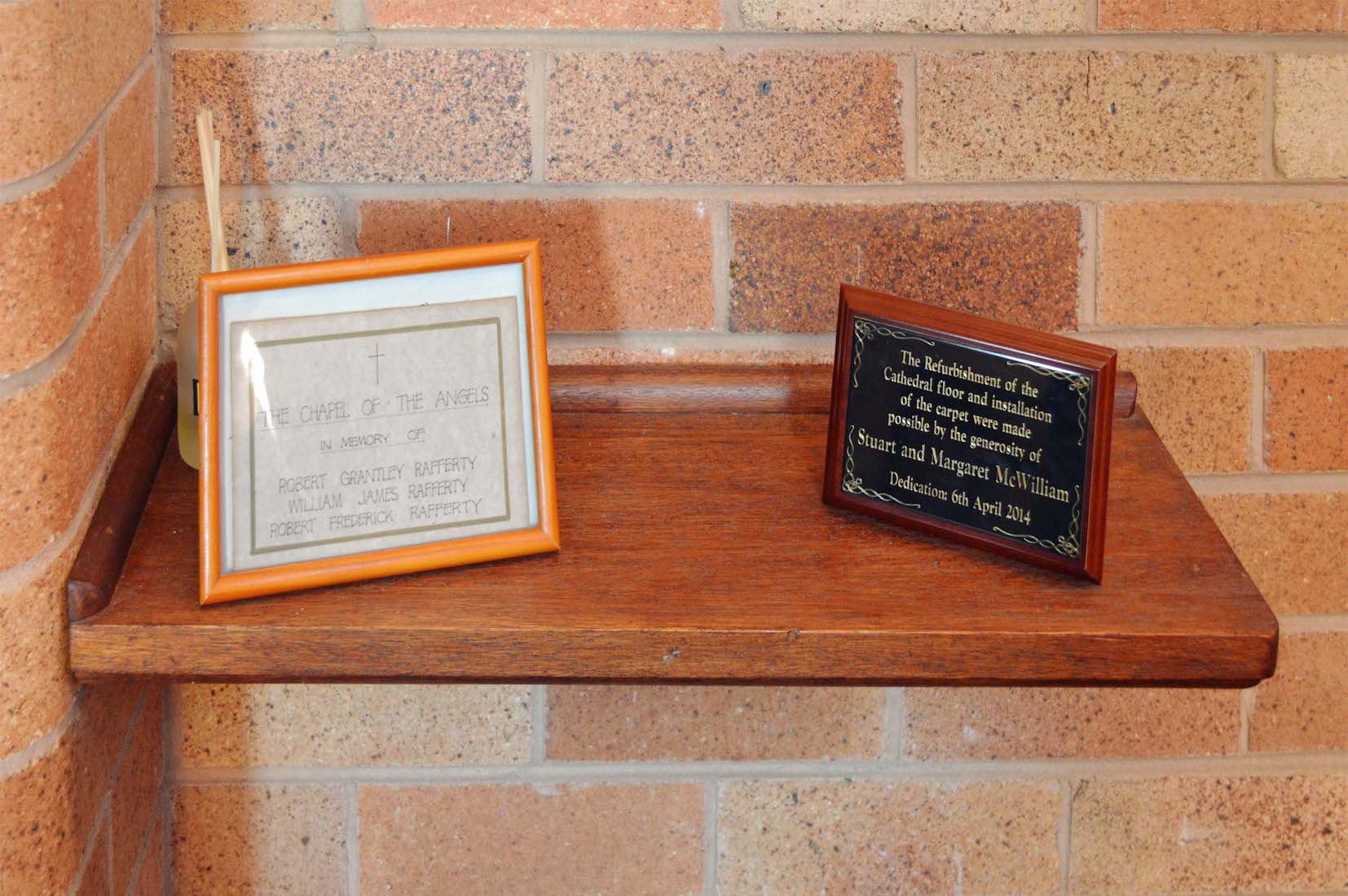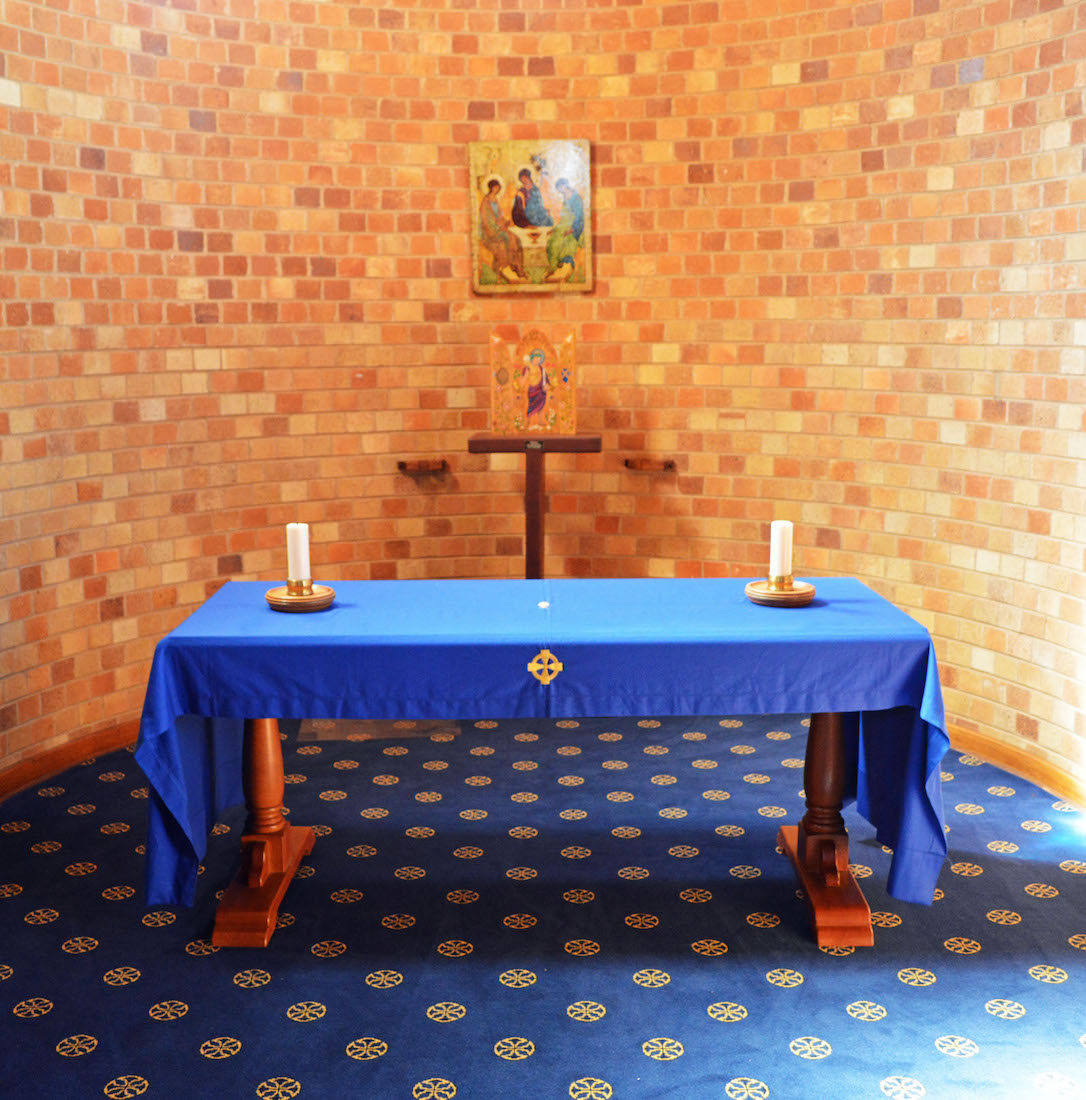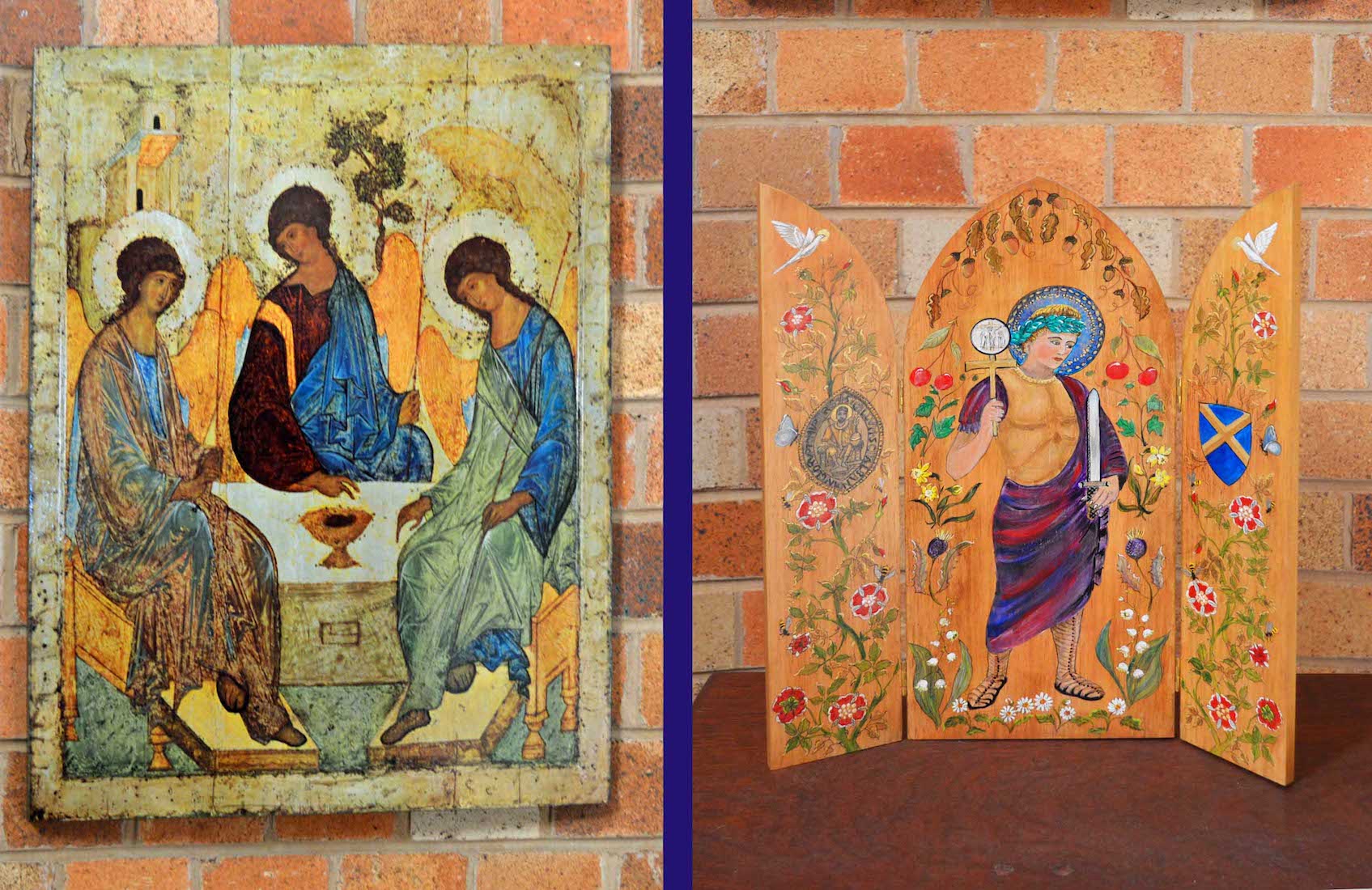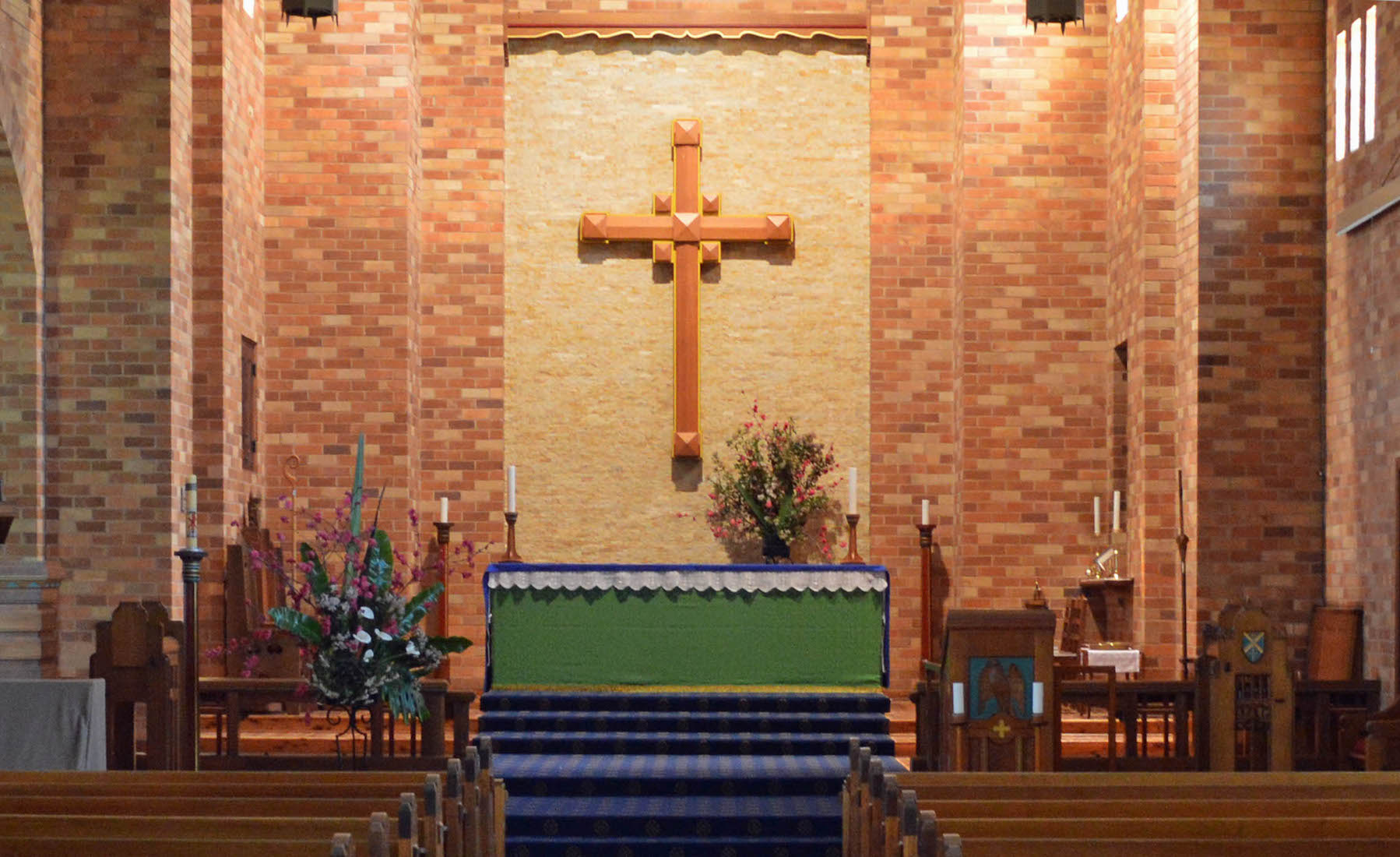
We turn now towards the Sanctuary, noticing from left the Paschal candle, the Bishop’s pastoral staff and cathedra, the high altar and cross, the lectern and Dean’s chair. PLAN
42. PASCHAL CANDLE AND STAFF
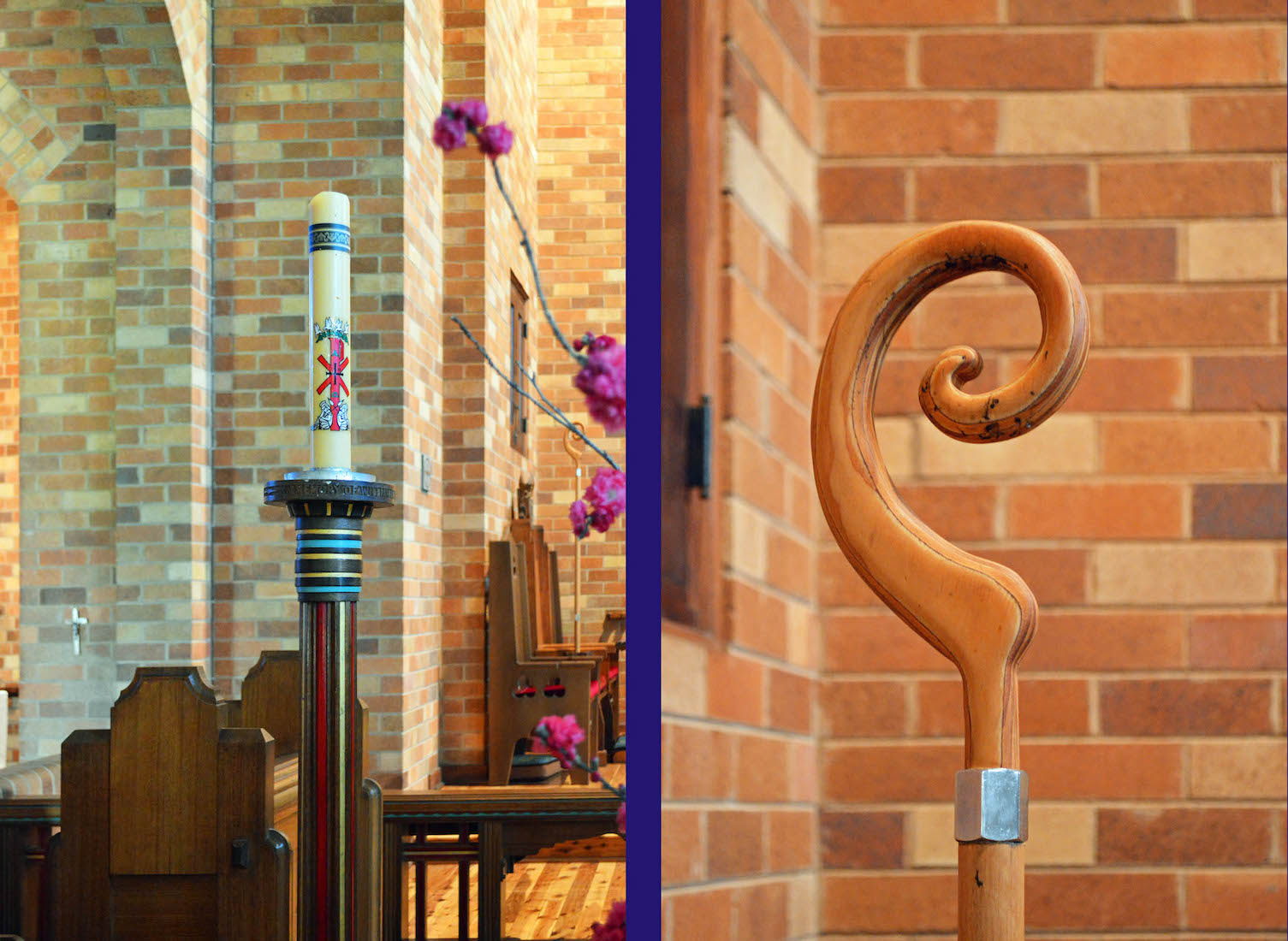
The paschal candle is a common feature of churches and cathedrals, again emphasizing the link between God and light. The Bishop is often thought of as the shepherd of his flock, following the example of Jesus. This is a beautifully crafted wooden staff.
43. CATHEDRA
The Bishop is in charge of the local group of Anglican churches, or Diocese. The Bishop has a special seat or throne, known (from the Latin) as the cathedra. This church is called a cathedral because the cathedra is sited here. The Diocesan coat of arms appears at top, surmounted by the Bishop’s mitre – his sign of authority.
44. CROSS
This large wooden cross was erected in 1985. It is unusually decorated with small square pyramids.
45. SANCTUARY WINDOWS
Above the cross is the East Window depicting ‘the Holy Spirit shedding a radiance over the regal figure of the Ascended Lord’. At the base of the panel within the window is the Cross, over which is the rainbow, reminding us of God’s promise of everlasting life to the faithful made possible by the sacrifice on Calvary. The windows on either side depict the Company of Heaven.
46. HIGH ALTAR
Many cathedrals have a high altar and a smaller altar closer to the congregation. St Alban’s has this single altar from where the Eucharist is served week by week.
47. CREDENCE TABLE
At the side of the high altar is this credence shelf, chairs and small table used during services.
48. CEREMONIAL CROSS AND WAND
Processions form an important part of Cathedral worship. Such processions are often led by a crucifer, bearing the ceremonial or processional cross. A smaller wand can be used for calling people forward, or acknowledging special clergy.
49. DEAN’S CHAIR
While the Bishop has responsibility for all the churches in a diocese, the Dean or Rector looks after the actual Cathedral. He has his own special chair.
50. SOUTHEAST VIEW
Standing back in the nave, we see how the various items of furniture are positioned. In the foreground is the lectern. The furnishings in the Cathedral were designed by its architect Louis Williams, and are made from kiln dried mountain ash and were manufactured and supplied by Messrs John Trengrove and Sons of Geelong, Victoria. The carved mitre above the Bishop’s throne, a relief panel of an eagle on the lectern, two St Alban’s shields on the Dean’s Prayer Desk and the rope carving on the Chapel altar rails were crafted by Mr W. Langcake of Moorabbin, Victoria.
51. THE LECTERN
The lectern is modern in style, and features a carved wooden eagle. This is unusual (normally the lectern in a cathedral is made of brass), but fits in well here. The eagle was thought to be the bird that flies closest to heaven. The Bible is read from the lectern during services.
53. HONOUR ROLL
At the East end of the South aisle is this small Honour Roll of the men of this parish who died in World War II.
54. SOUTH AISLE
Looking down the South aisle to the front of the Cathedral we see the Honour Roll. Also along this side are various further stations of the cross. Here Jesus speaks to the women of Jerusalem (Station VIII) – the incident found in Luke 23:28.
55. THE SOUTH AISLE
St Alban's combines modern and traditional architecture, designed for Australian conditions and was described by architect Louis Williams as ‘20th Century Gothic’. The arches are pointed, but much wider than traditional Gothic style.
57. CHAPEL WINDOWS
The Chapel of the Angels is named for the three stained glass windows, each of which has an angel theme. The outer windows are in fact not identical: see if you can spot the difference in design!
58. CHAPEL SHELF
At the left of the entry to the Chapel of the Angels is a shelf with two plaques. One tells that the Chapel was given in memory of Robert Grantley Rafferty, William James Rafferty and Robert Frederick Rafferty. The other acknowledges that the refurbishment of the Cathedral floor and installation of the carpet were made possible by Stuart and Margaret McWilliam, dedicated 6th April 2014.
59. CHAPEL ALTAR
The Chapel of the Angels contains a simple moveable altar. It is a light and cheerful space.
60. ICON AND TRIPTYCH
Hanging behind the altar (shown left) is a representation of the ‘Trinity Icon’, the original of which was executed in the 15th Century by Andrei Rubliv in memory of St Sergius of Radonezh. On the altar is a small flowery triptych featuring St Alban(?).


